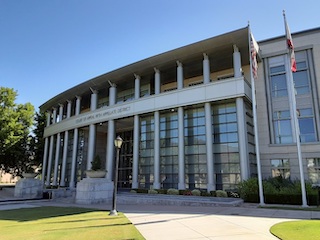Assembly Bill (AB) 333 amended Penal Code § 186.22 in several ways to increase the evidentiary burden for the prosecution to prove a gang-related crime or a criminal street gang sentencing enhancement.
Whether or not the amendment is retroactive is always a big issue and for AB 333, the answer is that the new law is retroactive to cases not yet final on appeal. In re Estrada (1965) 63 Cal. 2d 740, 744-746 (when a new statute reduces punishment for a particular crime, courts may presume that the statute applies to judgments that are not yet final on the amendment’s operative date); People v. Lopez (2021) 73 Cal. App. 5th 327, 344 (retroactive application of a new law decreasing punishment also applies to sentencing enhancements).
It is not retroactive to cases that are final, meaning the conviction or sentence cannot be appealed because too much time has passed since the sentence was imposed or a ruling on appeal was issued.
The Gist of this Article: Application of Assembly Bill (AB) 333 to a pair of convictions for a multitude of crimes in the following summary was based only on finding fault with an expert’s testimony that failed to opine the prior crimes benefitted the gang, although we think it could have also been based on a failure to specify when the prior crimes were committed.
One change that AB 333 imposes on § 186.22 is that the prosecution must prove a pattern of criminal gang activity, also referred to as “predicate offenses.” People v. Valencia (2021) 11 Cal. 5th 818, 829. Prior to AB 333, it was unnecessary for the prosecution to prove a predicate offense was gang related. People v. Gardeley (1996) 14 Cal. 4th 605, 609-610 [“We disagree that the predicate offenses must be ‘gang related.’”]. Now, the law requires “the [predicate] offenses [to] commonly benefit a criminal street gang, and the common benefit of the offense is more than reputational,” effectively overruling Gardeley, supra (Penal Code § 186.22(e)(1)).
It is against this background in the new law that we summarize People v. Michael Geronimo Rodriquez, a recent Fifth Appellate District Court ruling out of Kern County.
Elijah and Michael Rodriguez were jointly tried and convicted of four crimes: attempted murder (Penal Code §§ 664/187); assault with a firearm (Penal Code § 245(b)); assault with a deadly weapon (Penal Code § 245(a)(1)) and active gang participation (Penal Code § 186.22(a)).
Alleged enhancements included premeditation and deliberation (§ 664(a)), gang-related crime (§ 186.22(b)), personally inflicting great bodily injury (§ 12022.7(a)), personal use of a firearm (§ 12022.5(a)) and discharging a firearm causing great bodily injury (§ 12022.53(d)).
The underlying facts were that a female was driving both brothers when the car crashed into another car driven by a rival gang member. The victim explained that one brother hit him in the head with a gun and other man punched him in the chest. It was unclear if there was any evidence that either brother fired the gun.
At trial, a gang expert testified and opined that both brothers were active gang members. He testified that the gang’s primary activities included assault and homicide. The expert explained also that three other members of the gang were previously convicted of illegally possessing firearms, but the expert did not specify when such convictions took place.
The facts of the case did not include any evidence that the brothers were wearing any clothing associated with their gang membership, or that the brothers uttered the gang’s name or showed gang symbols in committing the crime. In other words, there was nothing to indicate that the incident was anything more than a violent case of road rage.
 Fifth District Court of Appeal Fresno
Fifth District Court of Appeal Fresno
While it seems to us that the gang allegations in this case could be vacated on many grounds, the Fifth Appellate District narrowed it down to the expert’s testimony failing to opine that the predicate offenses benefited the gang.
On this ground, the appellate court reversed the count of gang participation and vacated all gang enhancements.
We find this ruling reassuring, but mourn the many serving time right now on legally flawed judgments that are final and cannot be reversed. Indeed, this case exemplifies how gang participation cases were commonly presented and convictions were reached. We hope that, someday, the new gang participation and enhancement requirements become applicable even to those serving final judgments, much like the new felony murder rule (now applicable even to attempted murder and some forms of manslaughter) applies.
The citation for the Fifth Appellate District Court ruling discussed above is People v. Michael Geronimo Rodriguez (5th App. Dist., 2022) 75 Cal. App. 5th 816, 291 Cal. Rptr. 3d 70.
For more information about Assembly Bill (AB) issues, please click on the following articles:
 Fifth District Court of Appeal Fresno
Fifth District Court of Appeal Fresno